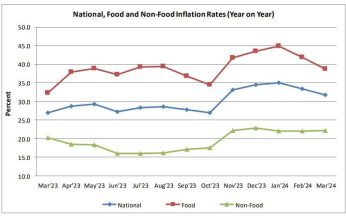Bank charges Scaring consumers
Fees associated with opening bank accounts and maintaining them make accounts unaffordable for the majority of the unbanked population, the FinMark Trust has said.
In its recently published 2020 Malawi Financial Inclusion Report, the firm observed that the average cost of using a bank account in Malawi did not change between 2015 and 2020, which may be a significant constraint to uptake and usage of bank services.
FinMark Trust figures suggest that while 69 percent of respondents in Malawi opened accounts, 41 percent of them used the account once and 10 percent of them became active users.

Reads the report in part: “The study suggests that the fees associated with opening accounts and maintaining them make accounts unaffordable for the majority of the unbanked respondents.
“It is not clear, though, if universal access will be achieved by 2030 [one of the United Nations Sustainable Development Goals]. This goal is especially at risk given that bank costs and charges have not fallen significantly and given high mobile money charges in Malawi.”
Currently, CDH Investment Bank (CDHIB) and NBS Bank plc ask customers to pay K10 000 and K16 000 for a replacement of a new automated teller machine (ATM) card while their counterparts at Standard Bank plc are debited K15 000 as monthly service fees for private current account holders.
NBS Bank plc customers on the other hand, pay K25 000 a monthly service fee. Bank cheque fetch K15 000 and K35 000, respectively, for a 50-paged and 100-paged.
However, despite the challenges, there has been progress in the penetration of financial services.
The World Bank Findex show that the proportion of adults that have an account at a financial institution increased from 18 percent in 2014 to approximately 24 percent in 2017; and the proportion that have any financial services account (at a financial institution, or a mobile money account) increased significantly—from 21 percent to 37 percent.
By 2018, according to the Reserve Bank of Malawi (RBM), 45 percent of adults had access to at least one financial services product from a formal provider—up from 34 percent in 2015.
Most recently, the RBM reports that the proportion of adults with a mobile money account in Malawi increased to 57.6 percent in 2019.
Consumer rights activist John Kapito earlier said the many and high charges a depositor is demanded to pay has led to high rates of financial exclusion and made Malawi to have the lowest number of depositors.
Bankers Association of Malawi (BAM) chief executive officer Lyness Nkungula earlier said banks react differently according to their internal business policies.





